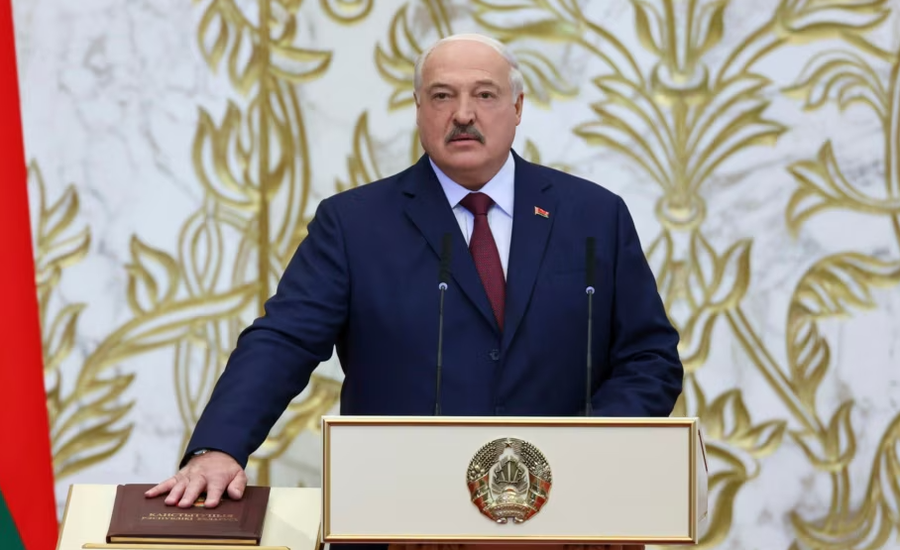
Belarus President Alexander Lukashenko was sworn in for his seventh term as president on Tuesday, but human rights organizations have called his rule "unconstitutional."
Lukashenko won over 86 percent of the vote in the January 26 presidential election, which was widely condemned by Western countries as a farce.
"They took place in conditions of a deep human rights crisis, in an atmosphere of total fear caused by the repression of civil society, independent media, the opposition and all opponents," a joint statement by ten Belarusian human rights organizations said on Tuesday.
Lukashenko was sworn in during a ceremony in the capital Minsk.
That same day, hundreds of supporters of the Belarusian democratic opposition organized protests in various countries in Europe, including Lithuania, Poland, and the Czech Republic, to mark Belarus Freedom Day.
March 25 marks the anniversary of Belarus' declaration of independence in 1918 and is traditionally celebrated by the Belarusian opposition, many of whose members have been forced to flee the country or imprisoned by Lukashenko's regime.
In January's presidential election, which was closed to international media and Western observers, Lukashenko ran against four other candidates, all of whom supported his government and policies.
Lukashenko, who has been in power for over three decades, rejected any criticism of the election, as did Russia, Minsk's closest ally.
In 2020, following contested presidential elections that gave Lukashenko another term, mass protests erupted, which were violently suppressed by the regime.
The elections were widely condemned as rigged by the United States, the European Union, and other international actors.
Protesters, who demanded Lukashenko's resignation, faced mass arrests, alleged torture and violent repression, which resulted in the deaths of several people./ REL (A2 Televizion)











